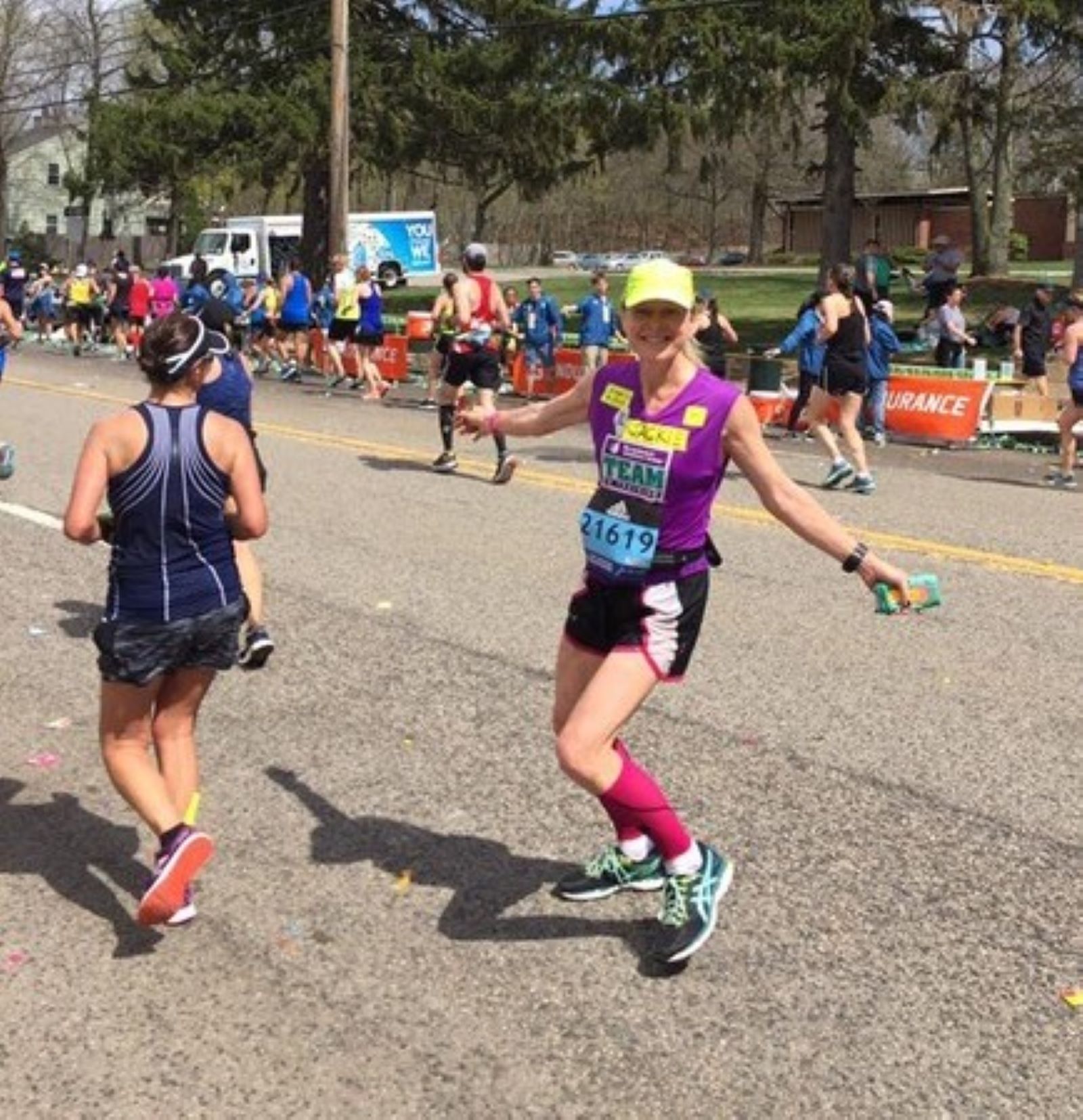<< Back
Training for a Marathon Provides Weight Loss Journey Lessons

December 08, 2023
Jacqueline Cameron didn’t run her first marathon until she was 44 years old. Now 61, she has 24 of the iconic long-distance races under her belt – and Boston is on her calendar for 2024. It will be her sixth time running that race.
A medical weight loss doctor with Hartford HealthCare’s Digestive Health Institute, Cameron sees a lot of parallels between her quest to cross a finish line after 26.2 miles, and her patients’ decision to lose weight and live a healthy life.
“There are so many lessons I’ve learned training for marathons that relate to weight loss,” she says. In general, a weight loss journey is not a straight line, Cameron notes. There are successes and failures on the way to the goal. “And when things don’t go as planned, you forgive yourself and recalibrate,” she says.
“Sometimes plans need to be significantly altered, but sometimes you just get back on track and stick with the previous plan. The important thing is to not focus on failure and instead to focus on what you’ve already accomplished and refocus on the goal. And sometimes it might feel like failure, but it might just be a temporary setback with no guilt required.”
Cameron broke down her lessons that she shares with her patients below.
1. Be willing to take on a new identity, even if you don’t think you deserve it.
Cameron said she had an epiphany of sorts when she started training for her first marathon. The coaches “immediately called us endurance athletes. And I thought, ‘No I’m not. Not yet.’ I felt like an imposter. I thought I had to have success first. But the coaches said, ‘You are committed. You are doing the work. The fact that you made the commitment, that you’re working toward your goal, means you are already an endurance athlete.’ ”
She translates this to weight loss, in that many of her patients “have these negative tapes playing in their heads, ‘I’m a failure, I’m bad, I’m ugly.’ And what they should be hearing is, ‘I’m strong, I’m capable, I’m healthy.’ Often, they feel they have failed and they need to focus on their strengths. When you see yourself in that light, you are empowered.
2. You need a team behind you.
When Cameron decided to run a marathon, she got a coach. “You need someone to tell you, ‘Yes, you can.’ It’s a long journey, and there’ll be ups and downs. You take it a week at a time. I couldn’t have done it without a team. When I met the others at our first practice, they were all scared too! We encouraged each other.”
At the Digestive Health Institute, there is an entire team dedicated to each patient, including the doctor, a registered dietician, support groups and more.
3. You never know what you can do.
“I was an athlete in high school and college and my dad ran marathons but I thought that was something I could never do. Run 26.2 miles? No.”
But then friends ran the Chicago Marathon and she watched from the sidelines. One friend who had no experience with distance running, trained and finished. “When I saw her do that, and I saw all the others who ran past me that day who looked like me, I thought, ‘I can do that.’ I registered the next year.”
4. Pace yourself.
“In a marathon, it’s a common mistake that you go out too fast. You forget that you have a long time to go. You don’t want to be out of energy at mile 10. Learning the pace that’s right for you, trying stuff and figuring out what works for you, that’s important. Each body is unique.”
5. Setbacks are normal.
“I never meet my training goals,” Cameron says. “Some weeks go well and some just don’t. You aim high, but life often intervenes and things don’t always go as planned or some days you just can’t drag yourself out of the door or you get sick or injured or the weather is terrible or work gets crazy or whatever. There isn’t a single time when I’ve stood at a start line and had not wished I’d trained harder.”